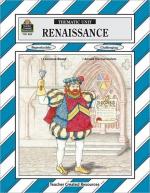|
This section contains 670 words (approx. 3 pages at 300 words per page) |

|
1494-1555
Physician, Mineralogist, And Scholar
Humanism. Georg Bauer, better known as Georgius Agricola, was born in Saxony, Germany, attended the University of Leipzig from 1514 to 1518, and then taught Greek and Latin, first at the municipal school in Zwickau and then as a lecturer at Leipzig. His early training in grammar and classical literature suggests that he followed the humanist program, as does his adoption of a Latin form of his name, Agricola (meaning, like Bauer, "farmer"). Humanism, which was a scholarly movement to recapture the elegance of classical rhetoric and the civic-mindedness of Athens and Rome at their greatest moments, was flourishing in the universities of Italy, France, and Germany in the early sixteenth century at the time that the seeds of the Lutheran Reformation were being sown. Although Agricola was critical of the papacy in his early years, like his humanist friend Erasmus...
|
This section contains 670 words (approx. 3 pages at 300 words per page) |

|




